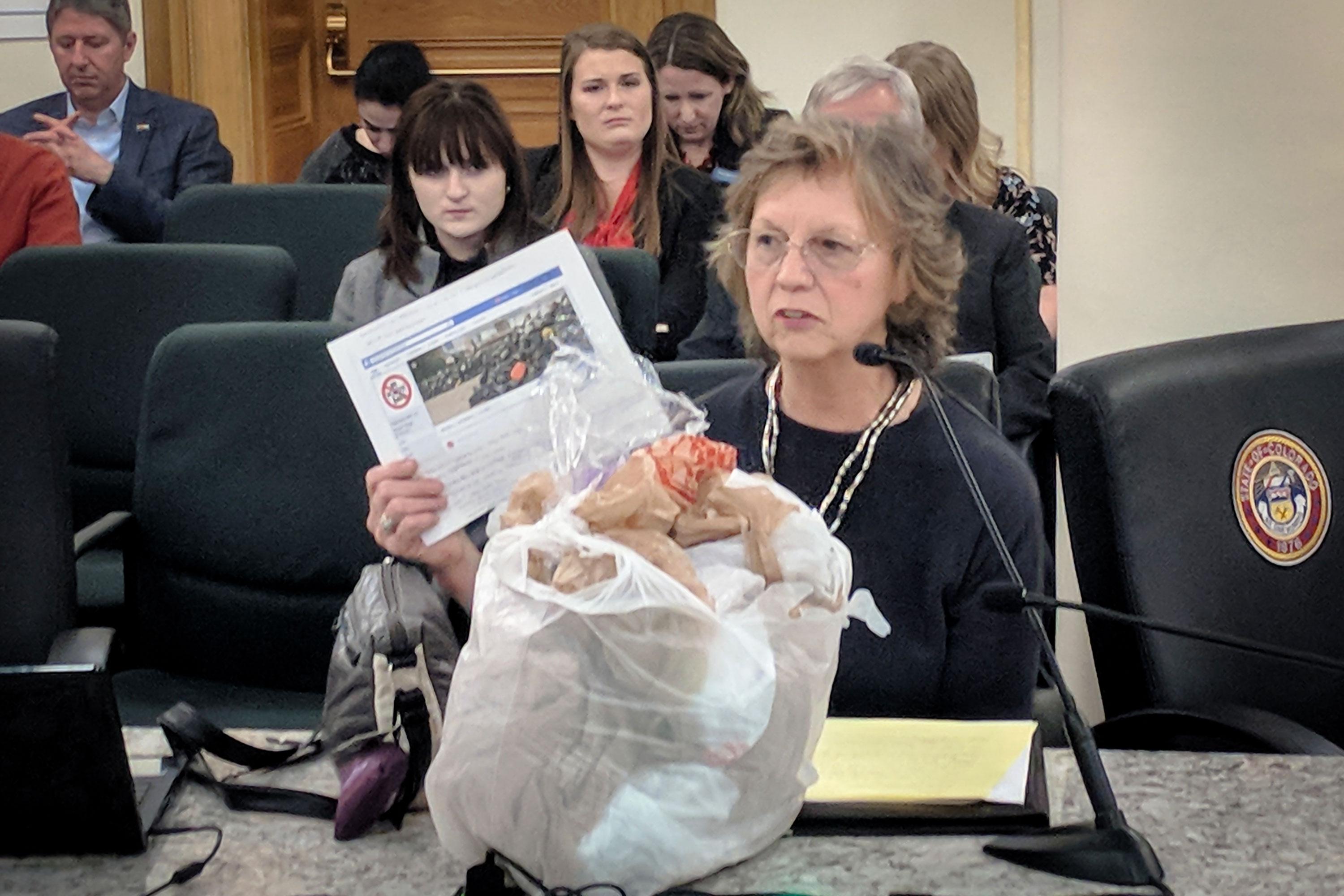

A proposal to tax plastic bags to build affordable housing came and went at the state capitol.
The bill, HB18-1054, didn’t really have the time to catch the attention of Terri Asivido and her walker loaded with groceries outside a Denver King Soopers. She brought a reusable bag, but, in the shuffle of checking out and reviewing her end of the month finances, she ended up with plastic.
“You may use this credit card for that and then you got a little cash,” she said. “So I was doing all this high financing and just forgot to give them my bag.”
Under the short-lived Affordable Housing Plastic Shopping Bag Tax proposal at the legislature, her mistake would have cost her — 25 cents for all the plastic bags she needed.
Like all proposed taxes in Colorado, as prescribed by TABOR, the tax would have had to go to the ballot for voters to approve once lawmakers were done. The bill also attempted to exempt people on the Supplemental Nutrition Assistance Program from having to pay the tax. The idea was to raise money for affordable housing and stop bags from packing landfills and clogging sewers.
Democratic state Rep. Paul Rosenthal, the bill sponsor, hoped to “kill two birds with one stone.”
Four Colorado cities have already banned plastic bags. Others impose fees. Rosenthal said his bill would have built on those efforts, but Republican Rep. Larry Liston argued the whole idea was self-defeating.
“If you had your way and we got rid of all the plastic bags, you would get nothing generated for the homeless or anybody else,” Liston said.
Plastic bag activist Janna Six testified in favor of the defeated tax on plastic bags. Her normal preference is an outright bag ban, “but this is a more of capitalistic choice. If you want to buy a bag, that's fine.”
The Plastics Industry Association opposed the measure. Matt Seaholm, the executive director of the industry group’s American Progressive Bag Alliance, said plastic bags have gotten a bad rap. They're are often reused and only take up a little space in landfills.
“The idea of punishing consumers would be missing the mark on sustainability,” he said.
In the end, the committee overwhelmingly defeated the bill. Back at the King Soopers, Terri Asivido, the shopper, said that was the right call.
“You know, if you have a job, 25 cents isn't very much. But on social security, 25 cents is a lot.”
She hopes lawmakers find other ways to address affordable housing.







